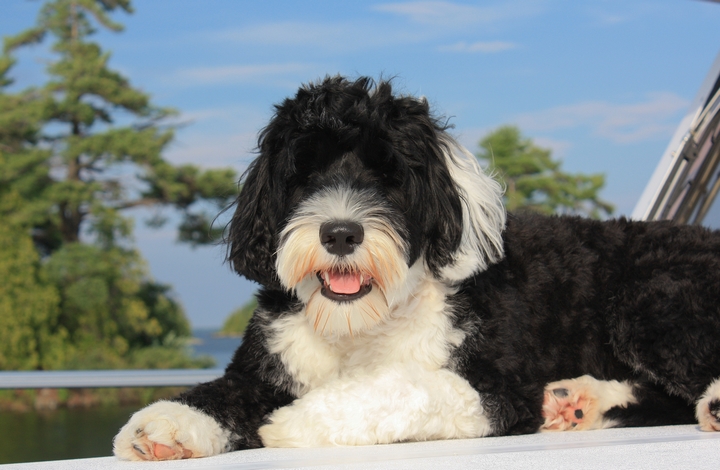You’ve just got yourself a new puppy! Puppies are just the cutest and adorable things on the planet. This is an exciting time for you and your family. Everything you do right now is going to revolve around the puppy. It’s also an important time for the puppy because you need to train and teach it new things for many reasons. You want it to stay safe and keep others safe as well.
You also need to establish that you are the top dog so that it learns to respect and listen to you. They’ll be naughty at this stage, so be patient and also be prepared for lots of accidents! Here are some training tips that will help you and your puppy.
1. Patience

When training a puppy, you need to have lots of patience. Remember, it’s only a baby, so it won’t know much yet, but hang in there, be patient and give lots of encouragement.
2. Consistency Is Key

You need to be consistent when training your puppy. You cannot change something you say or do or your puppy will get confused.
3. Show Confidence

You need to show your puppy that you are in charge and you have to show confidence. You have to be in control at all times. Hold the leash with confidence otherwise the puppy may not show interest or it may think it is in charge. While this may look cute, you must not allow this to happen.
4. Treats
The use of treats is a good way of training your puppy, and Portuguese water dog puppies are particularly fond of treats. It will soon realize that when it listens to you and does what you ask it to do, it will get a treat. Find a treat that your puppy likes. Dogs love those freeze dried chicken treats, so break those into small pieces.
Some things are easier to do while other commands may be harder. If you give the puppy a treat it really likes, then when you train it with harder commands, it will still be attentive.
5. Inappropriate Chewing
Some dog breeds like the Golden Retriever love to chew on furniture. If your puppy starts chewing on a shoe or slipper, or anything that it should not be chewing, you need to stop it by firmly saying “NO”, taking it away and giving it something else it can chew on safely. It takes time, so be patient. This allows the puppy to also understand what it means when you say “NO”, so it learns a very important verbal command. You don’t want the puppy chewing on electrical wires and things that can endanger the puppy, so make sure that it has chew toys to replace inappropriate chewing.
6. Crate Training

It can be hard for some owners to crate train their puppy and while this is understandable, if you can, try to get over this feeling of guilt, because crate training is actually a good thing. The crate is a safe haven for your puppy. It may be reluctant at first, but you will find that the puppy will eventually go there to lie down on its own. Crate training helps with housebreaking. Start the housebreaking process from day one. The earlier you set this pattern, the better for your puppy and for you.
Other things you should do at this early stage is to handle the puppy in various things so it gets used to this. So, things like brushing the hair or teeth, putting a collar or harness on will all help when later on, you need to clip nails, give medication or bathe it. They might not like it, but they need to get used to being handled so that it’s easier later on, so keep this in mind.



